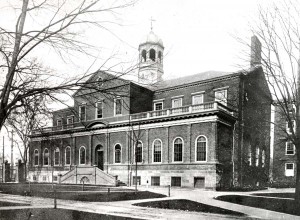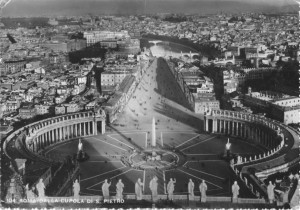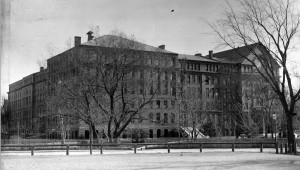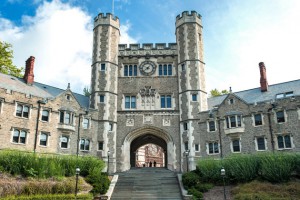 To Lawrence Smith Butler
To Lawrence Smith Butler
60 Brattle Street
Cambridge, Massachusetts. December 21, 1901
It was only last night that I heard you had lost your father, else I should have written before, because you know that my thoughts would turn to you at such a moment. I hope to see you soon—I go to New York on Xmas day and will look you up at once—but as one is not always inclined or able to say at odd times what is most in one’s heart, I will write you a word now. This is an irreparable loss for you but not a bitter one, because it is in the order of nature that we should survive our parents and your father has lived to see you all grown up and to leave his memory and influence always with you. That ought to be a consolation for you. This world is so ordered that we must, in a material sense, lose everything we have and love, one thing after another, until we ourselves close our eyes upon the whole. It is hard for the natural man to bear this thought, but experience forces it upon him if he has the capacity of really learning anything. We should not set our hearts, then, on a material possession of anything, but our happiness should be made to lie in this, that whatever we possess for a time should reveal the ideal good to us and make us better in ourselves. Your family life has been so ideally happy and united (at least so it impresses your friends) that it must be doubly sad to suffer this cruel change; but you cannot lose that past happiness altogether, because it was of the sort that brings happiness in memory and prepares one for meeting all the other events of life, sad and gay, in a right spirit, with a sense of what is truly good. The truly unfortunate are those persons—and how many of our friends are in this case!—who have never known anything worth living for, any noble and natural characters, any true happiness, or any beautiful thoughts and things. But those who have known such things and grown like them can never be truly unhappy because they carry the sweetness and truth within themselves which alone make a happiness that is worth having. Your nature and surroundings have opened this spiritual world to you more than to most people—that is why I have always cared for you so much—and that is a gift all the more to be grateful for in that it cannot be taken away.
From The Letters of George Santayana: Book One, [1868]-1909. Cambridge, MA: The MIT Press, 2001.
Location of manuscript: The University Club, New York NY
 To Cyril Coniston Clemens
To Cyril Coniston Clemens



